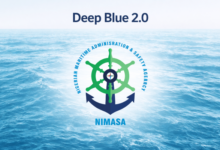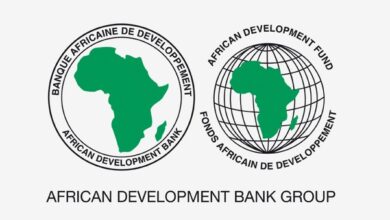ICTN is Missing Link in Nigeria’s Maritime Reform: Can save over ₦900bn Annually – SEREC

Nigeria’s push toward a modern, globally competitive maritime economy may hinge on one long-delayed reform: the full implementation of the International Cargo Tracking Note (ICTN).
According to a new policy brief by the Sea Empowerment and Research Centre (SEREC), the ICTN is not just another digital tool — it is a strategic economic firewall that can immediately plug over ₦900 billion in annual revenue leakages, strengthen national security, and sharply boost port efficiency.
SEREC’s Head of Research, Dr. Eugene Nweke, describes the ICTN as “the single strongest enabler of transparency, pre-arrival intelligence, and trade integrity Nigeria is currently missing.” The system, already standard across several African maritime economies, provides real-time, pre-verified cargo information even before vessels berth at Nigerian ports.
What ICTN Actually Fixes
The lack of ICTN keeps Nigeria trapped in a reactive, manual, and fragmented cargo verification model — a model that allows:
- Cargo concealment,
- Under-declaration,
- Falsified manifests,
- Illegal transshipment routes,
- High-risk or illicit consignments entering unnoticed.
With ICTN, SEREC projects that Nigeria can achieve:
- 25–35% reduction in cargo clearance time,
- 40% drop in trade malpractices within 18 months,
- Stronger maritime security screening,
- Improved efficiency under the National Single Window,
- Enhanced global competitiveness and WCO/IMO compliance.
Other African Economies Are Already Cashing Out
Countries such as Ghana, Senegal, Ivory Coast and Angola, all of which adopted ICTN ahead of Nigeria, have reported within two years:
- 18–22% growth in customs revenue,
- 30% reduction in port delays,
- 40% fall in false declarations.
Nigeria stands out today as one of the last major maritime nations in West and Central Africa without an operational electronic cargo note system. This gap directly weakens investor confidence and undermines trade integrity.
The Cost of Delay: Up to ₦1.2 Trillion Lost Annually
SEREC warns that Nigeria currently loses between ₦800 billion and ₦1.2 trillion annually to non-standardised declarations and untracked cargo movements, due to the absence of ICTN. The delay also risks derailing Nigeria’s 2026 deployment of the National Single Window (NSW) and ongoing Customs modernisation projects.
Why ICTN Must Be Seen as a Data Engine, Not a Competitor
Nweke emphasises that the government must stop treating ICTN as just another standalone technology and recognise it as the data-feeder layer for:
- the NSW,
- Customs modernisation,
- Port optimisation systems, and
- National maritime intelligence frameworks.
Without ICTN feeding accurate cargo data into these systems, Nigeria risks reinforcing digital fragmentation across its maritime architecture.
National Security Risks Are Growing
Without pre-shipment intelligence, Nigeria remains vulnerable to dangerous shipments, including:
- arms and ammunition,
- hard drugs,
- toxic waste cargo,
- prohibited goods disguised in legitimate consignments.
This gap has created compliance challenges under the WCO SAFE Framework and IMO ISPS regulations, lowering Nigeria’s risk-rating in global maritime security assessments.
BRANDECONOMY INSIGHT
Nigeria’s maritime reform agenda is ambitious, but without ICTN, every other digital initiative remains a patchwork. The ICTN is not simply a tool — it is the foundation layer that powers a modern Blue Economy. Its implementation is essential not only for revenue recovery but for national security, global competitiveness, and the credibility of Nigeria’s trade ecosystem.
Whether Nigeria moves forward now will determine its place in Africa’s emerging maritime power structure.
Nigeria’s maritime transformation gathers momentum, as is especially evident in the Nigeria Customs Service’s rapid digital optimisation drive. Under its modernisation agenda, Customs has deployed a suite of intelligent systems — the B∙Odogwu platform, Unified Customs Management System (UCMS), Trade Automation Tools, and the now fast-advancing National Single Window (NSW) framework — all designed to create a fully integrated, data-powered trade environment.
These advancements are not merely technological add-ons; they represent a decisive break from analogue bottlenecks and manual clearance regimes that historically enabled under-declaration, concealment, and corruption. With real-time data sharing, automated profiling, AI-assisted risk management, and inter-agency integration now accelerating, Customs is building the perfect digital infrastructure for ICTN to flourish.
In this emerging ecosystem, the ICTN becomes the primary intelligence engine — feeding verified pre-arrival cargo data into Customs’ automated systems even before vessels dock. Once combined with Customs’ digital reforms, ICTN will:
- Enhance predictive risk analysis,
- Enable instant cargo profiling,
- Sharpen targeting of high-risk consignments,
- Streamline clearance within a unified digital workflow, and
- Boost transparency across the entire supply chain.
This synergy is what will finally close the revenue leakages previously estimated at over ₦900 billion annually. Customs’ digital strides mean that once ICTN is deployed, it will not operate in a vacuum — it will plug seamlessly into an already-evolving global smart-port architecture, multiplying efficiency, enforcing compliance, and elevating Nigeria’s maritime competitiveness to global standards.
In essence, ICTN powered by Customs’ new digital backbone is not just reform — it is the catalytic engine for a next-generation Blue Economy, positioning Nigeria to reclaim its leadership in West and Central African trade.












